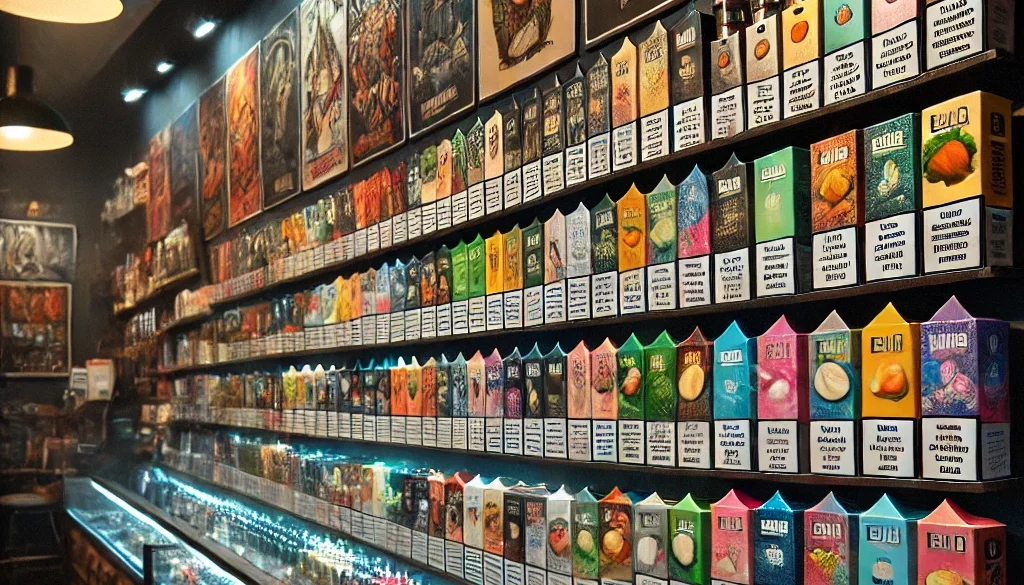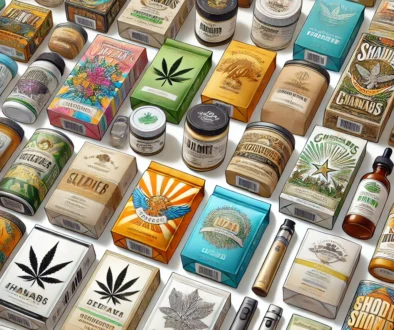FDA Continues to Crack Down on Tobacco Retailers and Proposes to Enhance Restrictions on Importation of Unauthorized Vapes
Smoke and vape shops with walls of flavored disposable vapes have become common place in the U.S. Indeed, many smoke shops now rely on the income from these vapes to stay in business. Few consumers and retailers are aware, however, that the majority of these flavored vapes are not authorized for sale in the United States. Smoke shops selling flavored vapes have become sitting ducks for Food and Drug Administration (“FDA”) enforcement, protected only by their sheer numbers and the FDA’s inability to enforce against every individual retailer across 50 states.
FDA has, however, increased enforcement efforts against tobacco retailers selling unauthorized vapes, and is now proposing to do more to stymy the import of these products into the U.S. In this post we outline why these flavored vapes are not lawful for sale, FDA’s enhanced enforcement efforts against retailers, and its new proposed rule to block the importation of vapes not authorized for sale.
I. Background
Under the Tobacco Control Act, no new tobacco products may be sold in the U.S. without “marketing approval” from FDA. Flavored e-cigarettes (“vapes”) and e-liquids are considered new tobacco products. The application for marketing approval is known as a Premarket Tobacco Product Application, or “PMTA.” More information about PMTAs is available on the FDA’s website here.
A properly prepared PMTA is akin to an application for a new drug – applicants are expected to show that their products are safe and effective alternatives to cigarettes through data obtained through clinical trials, and must submit a thorough review of relevant scientific literature. The data in a PMTA must show the FDA at least the following information:
- Risks and benefits to the population as a whole, including people who would use the proposed new tobacco product as well as nonusers;
- Whether people who currently use any tobacco product would be more or less likely to stop using such products if the proposed new tobacco product were available;
- Whether people who currently do not use any tobacco products would be more or less likely to begin using tobacco products if the new product were available; and,
- The methods, facilities, and controls used to manufacture, process, and pack the new tobacco product.
Suffice it to say that submitting a PMTA is cost prohibitive for many vape and e-liquid manufacturers. In addition, the review of a PMTA by the FDA’s Center for Tobacco Products can take multiple years.
So far, FDA has issued marketing approval to a very limited number of e-cigarette products (34 total). These include Vuse and NJoy, which you typically see at major chain retailers such as 7-Eleven. And, only tobacco and menthol-flavored products have been approved. JUUL was initially issued a denial of its PMTA, but that decision was rescinded and JUUL’s application is being re-reviewed by FDA.
In 2020, FDA stated that it would exercise enforcement discretion against certain types of products, including products for which a PMTA had been submitted by September 9, 2020. Given the above, practically all flavored disposable vape products seen in a typical smoke shop are unauthorized for sale because they have not received marketing orders from FDA or have not submitted a PMTA by the 2020 deadline.
II. Enforcement Against Retailers
FDA has several enforcement mechanisms at its disposal and most of its enforcement efforts have targeted online and brick-and-mortar retailers of flavored vapes. It is clear that FDA regulators review internet websites selling unauthorized vapes, but we have also seen an increased effort at enforcement against brick-and-mortar retailers.
Enforcement usually begins with a warning letter outlining the alleged violations and requesting that the retailer respond to FDA with a plan to come into compliance. All warning letters are posted on the FDA’s website here.
If a retailer does not comply with the warning letter, or a later compliance check finds that the retailer continues to sell unauthorized products, then enforcement will likely escalate to civil money penalties. Currently, the maximum penalty amount for tobacco products is $21,348 for a single violation. However, federal law also allows for an enhanced penalty amount for certain intentional violations relating to tobacco products. To date, FDA has issued civil money penalty complaints for the maximum amount against 138 brick and mortar and 21 online retailers for selling unauthorized tobacco products. FDA periodically announces the issuance of civil money penalties, such as in this press release from September 2024.
Businesses that have received civil money penalty complaints can pay the penalty, request to negotiate a settlement amount based on mitigation factors, file an answer to the complaint and request a hearing, or request an extension of time to file an answer to the complaint. Companies that do not take action within 30 days after receiving the complaint risk a default order imposing the full penalty amount. Further violations can lead to injunctions requiring the business to cease operations altogether.
Our office has assisted several tobacco retailers with answering civil money penalty complaints. If you have been issued a warning letter or complaint from FDA for sale of tobacco products, please reach out to us to see if we may be of assistance.
III. New Proposed Rule Would Target Imports
Because it is nearly impossible to enforce against every brick-and-mortar retailer in the country, FDA has turned its sights to the border, where the majority of unauthorized vapes flow in.
In August, FDA issued a proposed rule that would require any import containing e-cigarettes to have a “Submission Tracking Number,” or “STN,” entered into the online import database operated by U.S. Customs and Border Protection. STNs are assigned by FDA to applications for premarket review. Currently, the submission of an STN is optional, and only the brand name of the product is required.
While the issuance of an STN does not mean the product has been authorized for sale, it does mean the product’s manufacturer has at least taken the important step of applying for authorization. Under the proposed rule, the online database would automatically transmit the entry data to FDA for evaluation.
FDA is accepting public comments on this proposed rule until October 15, 2024. After review of public comments, the agency will issue a final rule that will become effective 30 days after publication in the Federal Register.
We suggest tobacco retailers prepare for the possibility that the proposed rule or something like it will go into effect in 2025, after which the supply of flavored vapes may be impacted. Retailers should also consider asking their suppliers whether the products they sale are the subject of a pending PMTA. Please reach out to our office if you would like to discuss other compliance strategies or if you are not sure whether the products you sell are authorized.
Holon Law Partners has 100+ years of experience combined guiding clients through complex cases and legal intricacies. Our approach is empathetic, customized, and client-centered with a focus on you and your unique business needs. To schedule a consultation with us, call our team at (866) 372-0726 or email us at: info@holonlaw.com.




